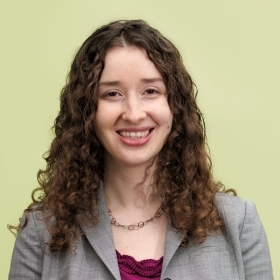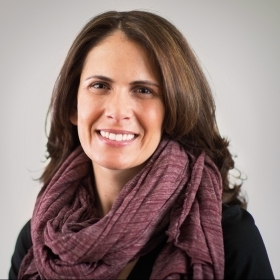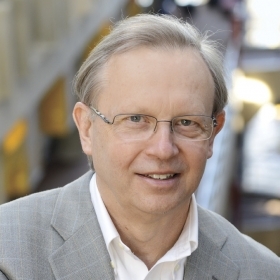Courtney and Kelsey Brown ’15
At this year’s Ruhlman Conference, people who heard Courtney Brown ’15 talk about introversion in the morning session did a double-take when they walked into the next session and saw Kelsey Brown ’15 present on frustration and motivation. Didn’t we just see that woman?
At this year’s Ruhlman Conference, people who heard Courtney Brown ’15 talk about introversion in the morning session did a double-take when they walked into the next session and saw Kelsey Brown ’15 present on frustration and motivation. Didn’t we just see that woman?
The Brown twins have more than just their looks in common: Both are psychology majors, and each calls herself an “extroverted introvert,” which startles people who don’t know them well.
For Courtney, the experience of people being surprised by her self-proclaimed introversion helped shape her thesis, which became a “quest to validate both the narrative of happy introverts such as myself and to invalidate the claim that extroverts are inherently happier than introverts,” she says.
Media articles about introversion often advise introverts to act like extroverts, she laments, yet some of the most valuable attributes of introverts are their abilities to listen, observe, think, dream, fantasize, and create.
Courtney’s research revealed that cultural expectations about introversion can affect people’s experience and the way they are perceived by others. She experienced that firsthand as a child in Sandy Springs, Ga. (part of Greater Atlanta), where she and Kelsey had supportive teachers and family who valued their strengths and encouraged their curiosity.
‘I knew it was OK to be vulnerable and to ask for help occasionally, and because of that, I have changed so much, yet have retained the core of who I have always been.’
—Kelsey Brown ’15
“My mother is very outspoken,” Courtney explains. “She values confidence and truth, and being raised by a confident, single woman was definitely significant to my becoming who I am today.”
At Wellesley, both sisters found a supportive faculty and many new “siblings” who encouraged them to discover the many facets of who they are.
“Over the past four years, I have gone from being a shy, quiet first-year to a much less shy, still proudly introverted senior because my curiosity, my questions, and even my confusion were met with joyful encouragement and help,” says Kelsey. “I knew it was OK to be vulnerable and to ask for help occasionally, and because of that, I have changed so much, yet have retained the core of who I have always been.”
Kelsey’s thesis examined whether people who are frustrated by difficult tasks lose motivation. She hypothesized that a lack of success early on might dissuade students from continuing academic pursuits. To test that, she created a computer game that asked participants to respond to stimuli only when instructed. One version was fairly easy, while a second was designed to frustrate subjects.
To Kelsey’s surprise, none of the participants quit after the first block of 30 mandatory trials, and most completed more than 100 voluntary trials, disproving that frustration affects task persistence or willingness to come back and complete the same tasks in the future. But as she told a smiling Ruhlman audience, all of her subjects were Wellesley students who were motivated by a small stipend and a deep desire to help each other succeed.
After graduation, Kelsey will be an ophthalmology research coordinator at the Massachusetts Eye and Ear Infirmary. Courtney will be the research coordinator in Wellesley’s psychology department, where she will explore her thesis topic more deeply and work toward publication of her findings. Both hope to attend medical school in several years.
No matter where their career paths lead, the sisters say they’ll be guided by the most crucial lesson they have learned from their mother and their Wellesley family: Love yourself, and don’t let anyone change who you are.


